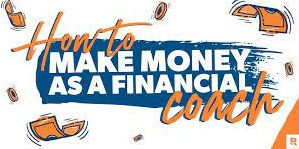
Debt can be a useful tool for achieving your goals, whether it’s purchasing a home, starting a business, or paying for education. However, it’s essential to understand that debt comes with hidden costs that can add up over time and make it harder to achieve your financial objectives. In this article, the hidden costs of debt and some tips on how to avoid them are explored.
Understanding the Hidden Costs of Debt
Debt comes with many hidden costs, including interest, fees, and penalties. Interest is the amount that lenders charge borrowers for the use of their money. It can add up quickly, especially if you have a high-interest rate or carry a balance for an extended period. Fees are charges that lenders impose on borrowers, such as application fees, annual fees, or late payment fees. Penalties are charges that lenders impose when borrowers violate the terms of their loans, such as missing payments or exceeding credit limits. All of these hidden costs can make it harder to pay off your debt and can even lead to additional debt.
Tips for Avoiding the Hidden Costs of Debt
Fortunately, there are several things you can do to avoid the hidden costs of debt. One of the most effective strategies is to pay off your debt as quickly as possible. The longer you carry a balance, the more interest you’ll pay, so making extra payments or paying more than the minimum can save you money in the long run. Another strategy is to consolidate your debt into a single loan with a lower interest rate. This can simplify your payments and save you money on interest and fees. Finally, it’s essential to read the fine print when signing up for a loan or credit card to understand all the terms and fees associated with the debt.
Developing Good Financial Habits
Beyond avoiding the hidden costs of debt, developing good financial habits can help you avoid debt altogether. One key habit is creating a budget and sticking to it. This can help you prioritize your spending and avoid overspending, which can lead to debt. Another habit is building an emergency fund, which can help you cover unexpected expenses without having to rely on debt. Finally, it’s essential to avoid lifestyle inflation, which is the tendency to spend more as your income increases. By keeping your expenses in check and living within your means, you can avoid accumulating unnecessary debt.
Seeking Professional Help
If you’re struggling with debt, seeking professional help can be a smart move. A financial advisor or credit counselor can help you develop a plan to pay off your debt and avoid future debt. And if you’re a business entity seeking to know more about debt and the opportunities that comes with it, you may visit https://www.debexpert.com/. They can also provide guidance on how to improve your credit score and manage your finances more effectively. By taking advantage of professional advice and support, you can avoid the hidden costs of debt and achieve your financial goals more quickly.
Balancing Debt and Savings
While paying off debt is essential, it’s also crucial to balance it with savings. If you focus too much on paying off debt, you may not have enough money to cover unexpected expenses or save for future goals. One strategy is to establish a balance between paying off debt and saving for emergencies and other financial objectives. For example, you might set a goal of paying off a certain amount of debt each month while also contributing to an emergency fund or retirement account. By finding the right balance between debt repayment and savings, you can stay on track with your financial goals while avoiding the hidden costs of debt.
Staying Motivated and Focused
Paying off debt can be a long and challenging process, but staying motivated and focused is essential. One way to stay motivated is to track your progress and celebrate your successes along the way. For example, you might set milestones for debt repayment and reward yourself when you reach them. Another way to stay motivated is to connect with others who are working towards similar goals. Online communities and support groups can provide encouragement, advice, and accountability as you work towards becoming debt-free. By staying motivated and focused, you can overcome the hidden costs of debt and achieve your financial goals.
Related Articles:
What you need to know for a better financial future
Commercial Mortgage Truerate Services
Final Thoughts
In conclusion, managing debt effectively requires an understanding of the hidden costs involved and implementing strategies to avoid them. By paying off debt quickly, consolidating debt, developing good financial habits, balancing debt and savings, seeking professional help, and staying motivated and focused, you can avoid the pitfalls of debt and achieve your financial goals.
Remember that debt is not inherently bad, but it needs to be managed responsibly to avoid the hidden costs that can accumulate over time. With the right strategies and mindset, you can use debt to achieve your financial objectives without sacrificing your long-term financial stability.So, take control of your finances, make a plan, and stick to it. With patience, discipline, and determination, you can overcome the hidden costs of debt and pave the way to a brighter financial future.






